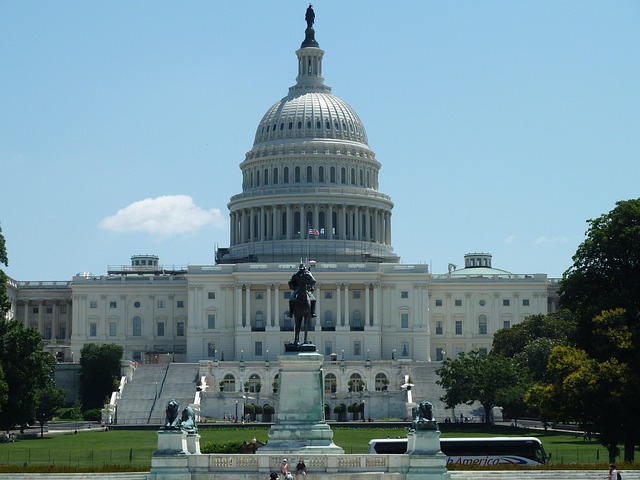Will the Biden Administration’s active environmental regulatory agenda continue in 2024? If the administration executes some of the pending environmental regulations – it’s fair to say that it will be an eventful environmental regulatory year.
E&E News/Greenwire recently weighed in on this topic. “This year is ‘a political year,’ said Frank Maisano, a senior principal at Bracewell. ‘The first half is the only time when you can get anything substantive done before — as [former House Energy and Commerce Chair] John Dingell always used to say — ‘The silly season kicks in.’”
Will the fall elections affect potential additional regulations, Executive Orders, enforcement, etc..? We will know in relatively short order.
Different Approaches to Environmental Protection
The current frontrunners for President, Joseph Biden and Donald Trump, take a very different approach to environmental protection. Under President Trump, the focus was reducing the environmental regulatory burden and cooperative federalism. President Biden has focused on additional regulations and enforcement, especially as it relates to climate and environmental justice. President Biden has also put significant effort toward addressing per- and polyfluoroalkyl substances (PFAS).
Of the environmental regulatory actions that are pending by spring, at least two are potentially significant and carry some controversy.

There are several pending federal environmental regulations that may be consequential to the regulated community (Image by Jacqui from Pixabay).
SEC Reporting Rule for GHGs Spring 2024
The Security and Exchange Commission’s (SEC) reporting rule deadline has come and gone several times – it is now anticipated that this climate disclosure rule will be final in spring 2024.
The SEC rule, which includes Scope 1, Scope 2, and Scope 3 greenhouse gas (GHG) emissions is part of the Biden Administration’s focus on climate. Scope 1 and Scope 2 GHG emissions are from owned or controlled operations and purchased or acquired electricity, steam, heat, cooling, etc…
Scope 3 GHG emissions are from indirect upstream and downstream activities. Scope 3 emissions cover everything from waste generation, business travel, and employee commuting.
As we have reported in the past, the pending SEC requirements have been strongly criticized by many including SEC Commissioners as overreach. SEC Commissioner, Hester Pierce is quoted as saying (among other things), “This commandeering of private capital in the name of ESG causes me grave concerns.”
According to a January 8, 2024, blog by Jenner & Block, the SEC plans to finalize these rules in April of this year.
CERCLA Designation of PFAS
While we await the final maximum contaminant levels from USEPA for certain PFAS in drinking water, the designation of specific PFAS as hazardous substances under the Comprehensive Environmental Response Compensation and Liability Act (CERCLA) is one of the more potentially consequential.
In August 2022, the EPA proposed listing Perfluorooctanoic Acid (PFOA) and Perfluorooctanesulfonic Acid (PFOS) as CERCLA hazardous substances. Then in April 2023, the EPA issued a notice of advance rulemaking to list seven additional PFAS as hazardous substances.
As we have previously discussed, the potential presence of PFAS at a site that has been remediated and closed for other contaminants may be reopened. Certainly, with the prevalence of PFAS in the environment, this potential, and what appears to be the imminent listing of PFAS as CERCLA hazardous substances, will be consequential for the regulated community.
Also, with respect to PFAS, remember that the final rule under the Toxic Substance Control Act Section 8(a)(7) “Reporting and Recordkeeping Requirements for PFAS,” is a significant endeavor. EPA estimates that approximately 97% of all firms potentially affected by this rule would meet the SBA standard of a small business, for a total of 128,051 affected small entities.
On our PFAS Resource Page, we list links to PFAS developments (proposed and final regulations, memoranda, and more).
There are several other significant developments with respect to environmental regulations and we will continue to monitor and report on these in the year ahead.
If you need assistance with an environmental issue, contact us at info@dragun.com or 248-932-0228.
Dragun Corporation does not use artificial intelligence in drafting our blogs or any other material.
Alan Hahn drafted this blog. Alan has an undergraduate degree in Environmental Studies and completed a graduate program in Environmental Management. He has worked in environmental management for 45 years. He has written hundreds of blogs and articles. His published work includes Michigan Lawyers Weekly, Detroiter, Michigan Forward, GreenStone Partners, Manure Manager Magazine, Progressive Dairy, and HazMat Magazine.
Jeffrey Bolin, M.S., reviewed the blog. Jeff is a partner and senior scientist at Dragun Corporation. He is a published author, frequent speaker, and expert witness. His expertise in environmental due diligence, PFAS, vapor intrusion, and site assessments has led to projects in the US, Canada, and overseas. See Jeff’s Bio.
Follow Dragun Corporation on LinkedIn, X, or Facebook.
Sign up for our monthly environmental newsletter.
Principled Foundation | Thoughtful Advice | Smart Solutions
Established in 1988
